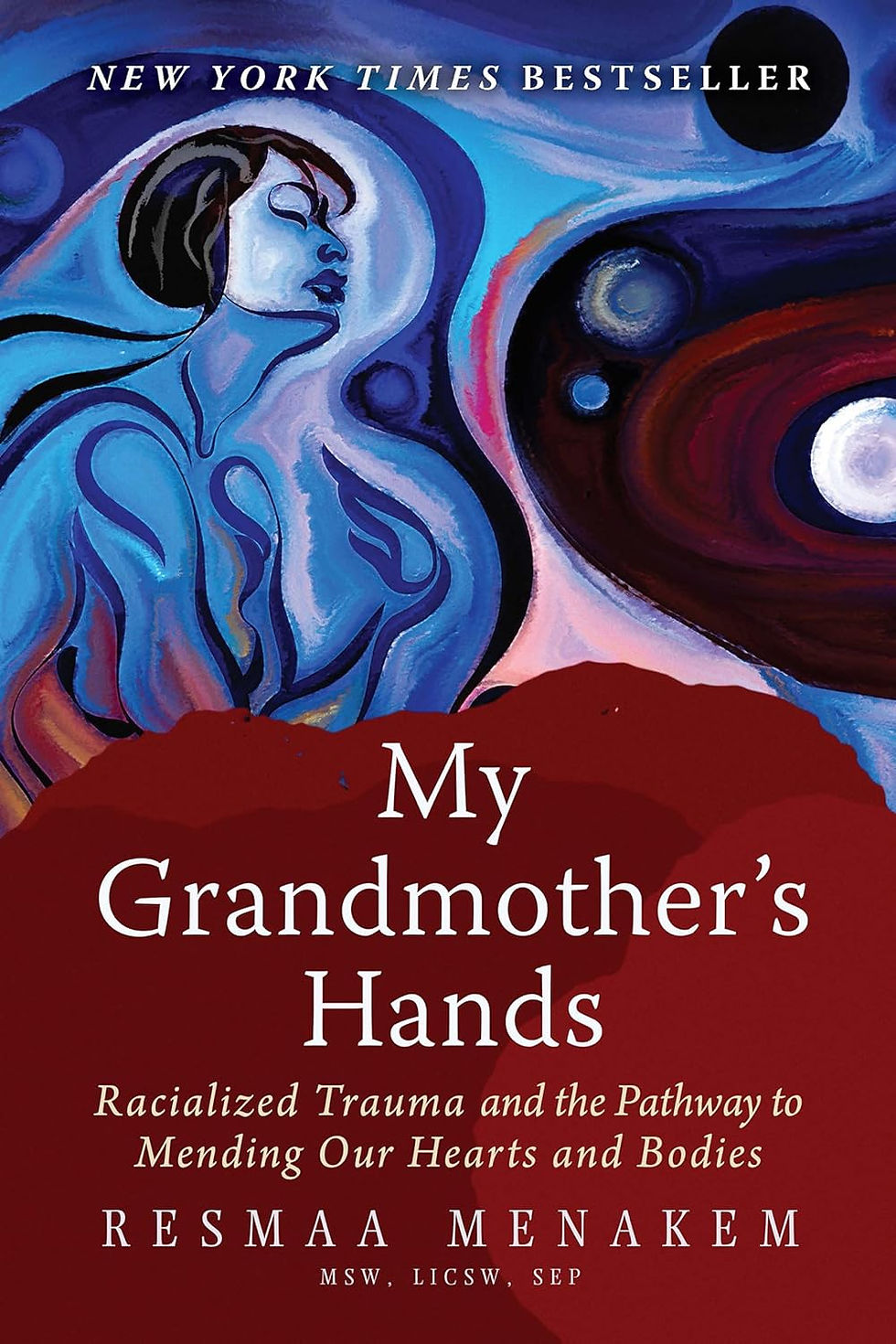Digital Blackface for White Folks: What it is and A Call to Action
- Samantha Mero
- Jul 24, 2023
- 3 min read
Updated: Aug 8, 2023
Introduction:
In today's increasingly interconnected world, where communication and self-expression often occur online, it is crucial for white folks to reflect upon the impact of our digital actions. One phenomenon that has gained attention in recent years is digital blackface. Coined to describe the act of non-Black individuals adopting Black personas or engaging in cultural appropriation through digital platforms, digital blackface has sparked discussions about its harmful effects. This article aims to educate and encourage white folks to take responsibility in creating a more inclusive and respectful online environment for people of color.

Understanding Digital Blackface:
Digital blackface refers to the appropriation of Black identity, culture, or expressions by individuals who do not identify as Black. It manifests in various forms, including the use of Black emojis, GIFs (pictured below), memes, and adopting vernacular associated with Black culture. While some may argue that these actions are harmless or even a form of admiration, they perpetuate harmful stereotypes, marginalize Black voices, and contribute to a culture of cultural theft and erasure. There is no need for a white person to ever use an emoji that is not their own skin tone. White people will never feel the effects of something like digital blackface, and should therefore trust black folks' voices (Ta-Nehisi Coates. Kimberly Foster, Roxanne Gay, Michael Harriot, Tressie McMillan Cottom, Damon Young, Brittany Packnett Cunningham, and Frederick Joseph, to name a few) when they speak of the harm it creates.
The Harms and Negative Impacts:
Reinforcing Stereotypes: Digital blackface perpetuates stereotypes that have long oppressed and marginalized the Black community. By reducing Black culture to a series of exaggerated mannerisms or catchphrases, it reinforces harmful and dehumanizing caricatures. Let's also remember that all black people are not a monolith-- AKA they are not all the same!
Appropriation and Erasure: Engaging in digital blackface involves appropriating elements of Black culture without acknowledging their historical and cultural significance. This act erases the struggles and contributions of Black individuals, contributing to the ongoing cultural erasure and devaluation of their experiences.
Marginalization and Silencing: Digital blackface can overshadow or drown out authentic Black voices and perspectives. When non-Black individuals appropriate Black culture, they often receive praise and attention that should be directed towards the original creators. This further marginalizes Black creators and reinforces systemic inequalities.
Perpetuating Racism: Digital blackface operates within a broader context of systemic racism. By trivializing Black culture and reducing it to a trend or a commodity, it reinforces the notion that Blackness is only acceptable when detached from its historical context. This perpetuates racial inequalities and undermines efforts towards a more inclusive society.

What White People Need To Do:
Educate Yourself: Engaging in self-education is essential to understanding the historical and cultural significance of different cultural expressions. Read books (see book recommendations that I've found helpful below), articles/blogs, and listen to voices from diverse backgrounds to broaden your knowledge and perspective. More importantly-- listen without allowing denial and defensiveness to rear their ugly heads.
Challenge Implicit Bias: Reflect on your own biases and assumptions. Be mindful of the content you share and the reactions you have towards Black voices. Strive to dismantle stereotypes and challenge problematic narratives. This involves actually intervening in situations when opportunities arise-- staying silent perpetuates the status quo. Change simply will not happen if folks with privilege do not actively intervene (this applies to situations outside of digital blackface as well)!
Amplify Black Voices: Use your privilege to actively support and promote the work of Black creators. Start making it a habit of asking yourself when you need to listen and when you need to speak up, and act accordingly. Share Black-created content, engage in constructive conversations with other white people, and uplift Black voices in digital spaces. By doing so, you contribute to a more inclusive online environment.
Cultivate Cultural Respect: Respect cultural boundaries and avoid appropriating or imitating cultural practices that are not part of your own heritage. Challenge your white-supremacist upbringing to not steal from cultures that are not your own. Instead, appreciate and learn from different cultures with sensitivity and respect.

Conclusion:
Digital blackface may appear harmless at first glance, but its impact goes beyond individual actions. It perpetuates harmful stereotypes, erases cultural contributions, and marginalizes Black voices. If more white folks recognize and challenge digital blackface, we can foster a more inclusive online environment that values and respects the diverse experiences and contributions of all individuals. Let us strive for genuine cultural appreciation, empathy, and respect in our digital interactions, and work towards a society where everyone can express themselves without fear of erasure or marginalization. White folks: you know what to do!
Book recommendations:
White Women: Everything You Already Know About Your Own Racism and How to Do Better by Regina Jackson and Saira Rao - click here
Mindful of Race by Ruth King - click here







Comments